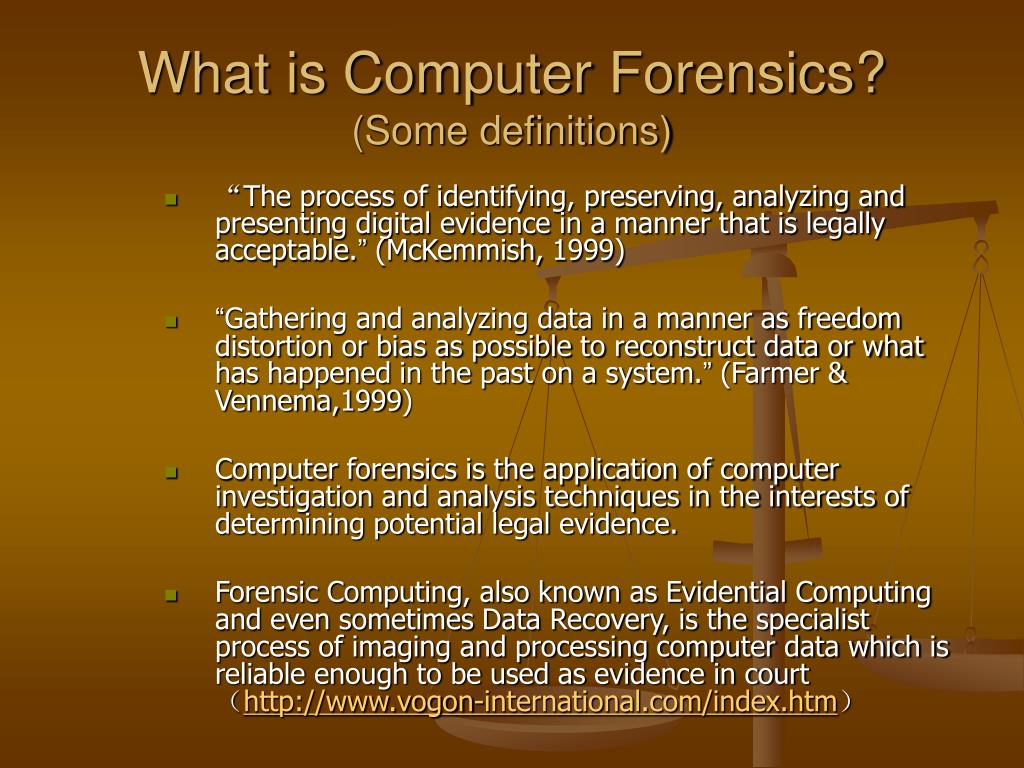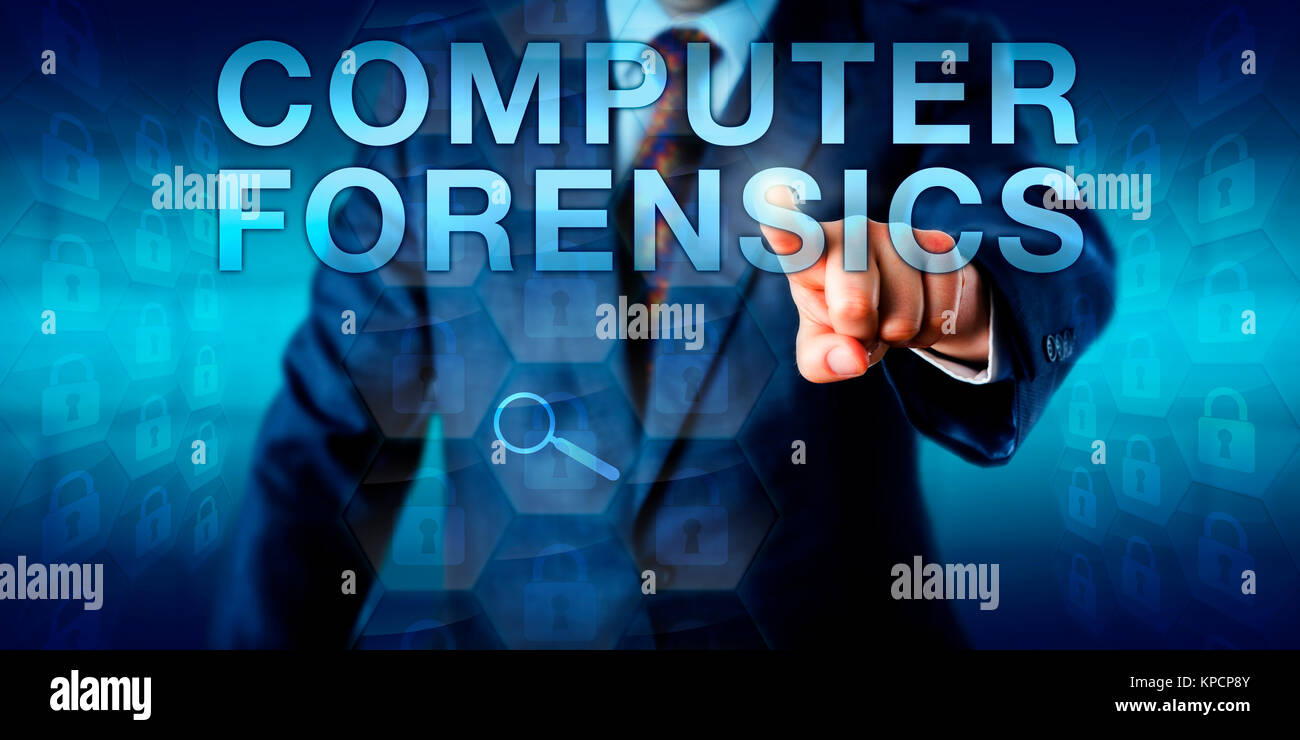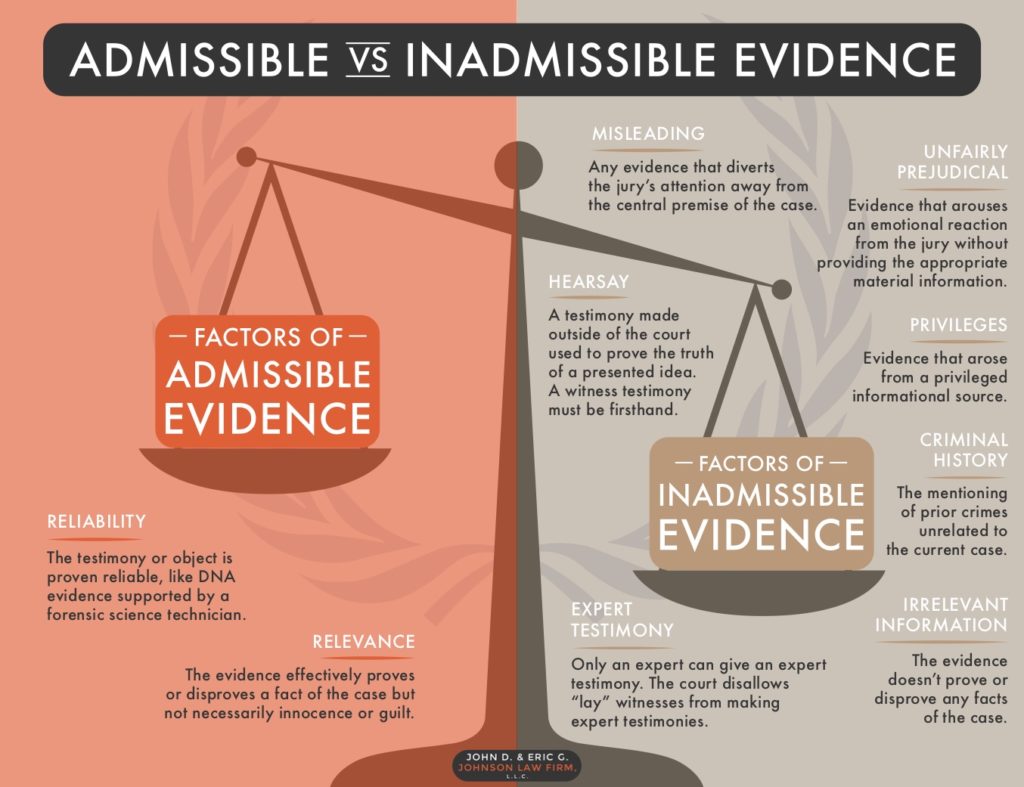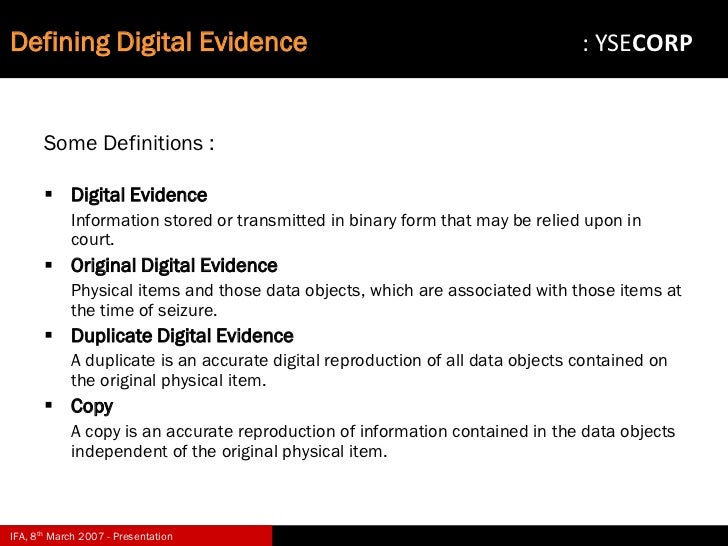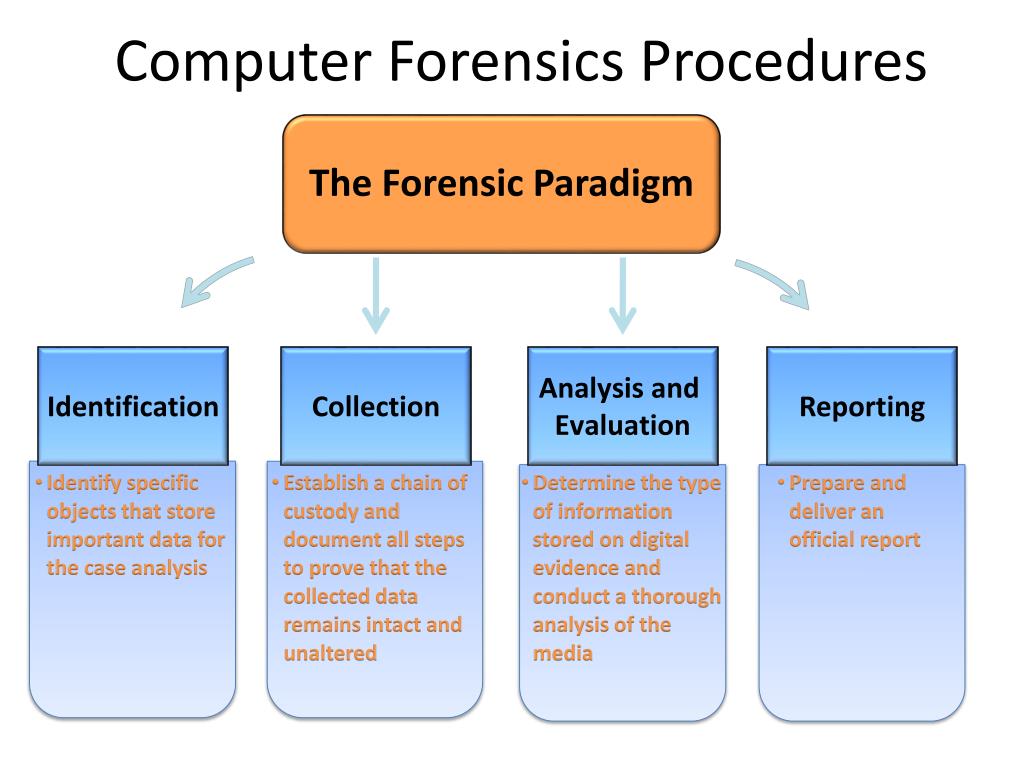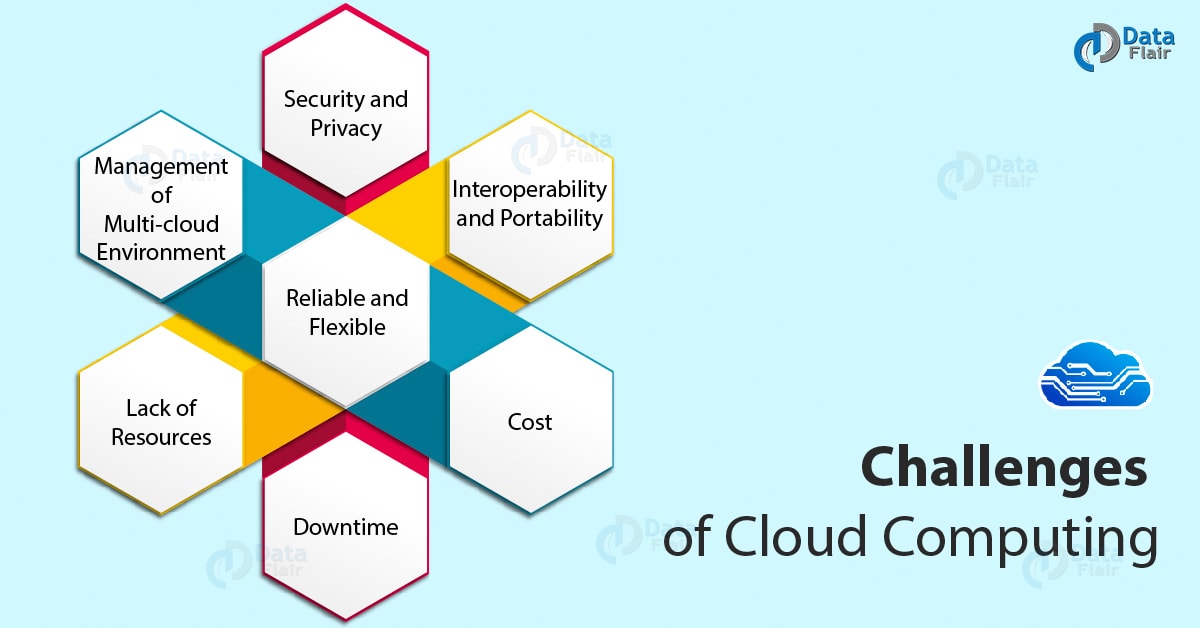Computer Forensics Legal Issues Presentation
| Introduction to Computer Forensics Legal Issues | ||
|---|---|---|
| Computer forensics is the application of investigation and analysis techniques to gather and preserve evidence from digital devices. Legal issues surrounding computer forensics involve privacy, admissibility of evidence, and jurisdictional challenges. It is crucial for computer forensic experts to be knowledgeable about these legal issues to ensure their investigations are legally sound. | ||
| 1 | ||
| Privacy Concerns in Computer Forensics | ||
|---|---|---|
| Privacy laws vary across jurisdictions, and computer forensic experts must be aware of the applicable laws in their jurisdiction. Collecting, analyzing, and preserving data from digital devices may involve accessing private and sensitive information. Legal frameworks such as the Fourth Amendment in the United States protect individuals' privacy rights, and computer forensic investigations must adhere to these laws. | ||
| 2 | ||
| Admissibility of Computer Forensics Evidence | ||
|---|---|---|
| Computer forensic evidence must meet certain criteria to be admissible in court. The evidence must be relevant, reliable, and obtained legally, following the rules of evidence. Forensic experts must document their processes and maintain a clear chain of custody to ensure the admissibility of the evidence. | ||
| 3 | ||
| Legal Challenges in Jurisdiction | ||
|---|---|---|
| The global nature of digital evidence poses challenges in determining jurisdiction for computer forensic investigations. Different countries may have different laws and regulations regarding data privacy and cross-border data transfers. Computer forensic experts must navigate these complex legal landscapes to ensure compliance and avoid jurisdictional conflicts. | ||
| 4 | ||
| Legal Considerations in Acquiring Digital Evidence | ||
|---|---|---|
| Computer forensic experts must obtain proper legal authorization, such as search warrants, before acquiring digital evidence. Obtaining evidence without proper authorization may render it inadmissible in court. Experts must also be cautious about preserving the integrity of the evidence during acquisition to ensure its reliability and admissibility. | ||
| 5 | ||
| Challenges of Cloud Computing in Computer Forensics | ||
|---|---|---|
| Cloud computing presents unique legal challenges in computer forensics. Data stored in the cloud may be subject to different legal jurisdictions and international data protection laws. Computer forensic experts must navigate these challenges when accessing and analyzing data stored in the cloud. | ||
| 6 | ||
| Legal Issues in Data Retention and Destruction | ||
|---|---|---|
| Organizations have legal obligations to retain and securely destroy data in accordance with applicable laws and regulations. Computer forensic experts must consider these legal requirements when collecting and analyzing digital evidence. Failure to comply with data retention and destruction laws can have legal consequences and impact the admissibility of evidence. | ||
| 7 | ||
| Legal and Ethical Responsibilities of Computer Forensic Experts | ||
|---|---|---|
| Computer forensic experts have legal and ethical responsibilities to conduct their investigations in a fair and unbiased manner. They must adhere to professional codes of conduct and ethical guidelines. It is crucial for experts to maintain objectivity and ensure their actions are within the boundaries of the law. | ||
| 8 | ||
| Legal Collaboration in Computer Forensics | ||
|---|---|---|
| Computer forensic experts often collaborate with legal professionals, such as lawyers and prosecutors, throughout their investigations. This collaboration ensures that the forensic process aligns with legal requirements and supports the overall legal case. Legal professionals provide guidance and expertise to ensure the admissibility and relevance of computer forensic evidence in court. | ||
| 9 | ||
| Conclusion | ||
|---|---|---|
| Computer forensics legal issues are complex and ever-evolving. Forensic experts must stay informed about the legal landscape and adapt their practices accordingly. By understanding and addressing legal issues, computer forensic experts can ensure the integrity and admissibility of their investigations. | ||
| 10 | ||
